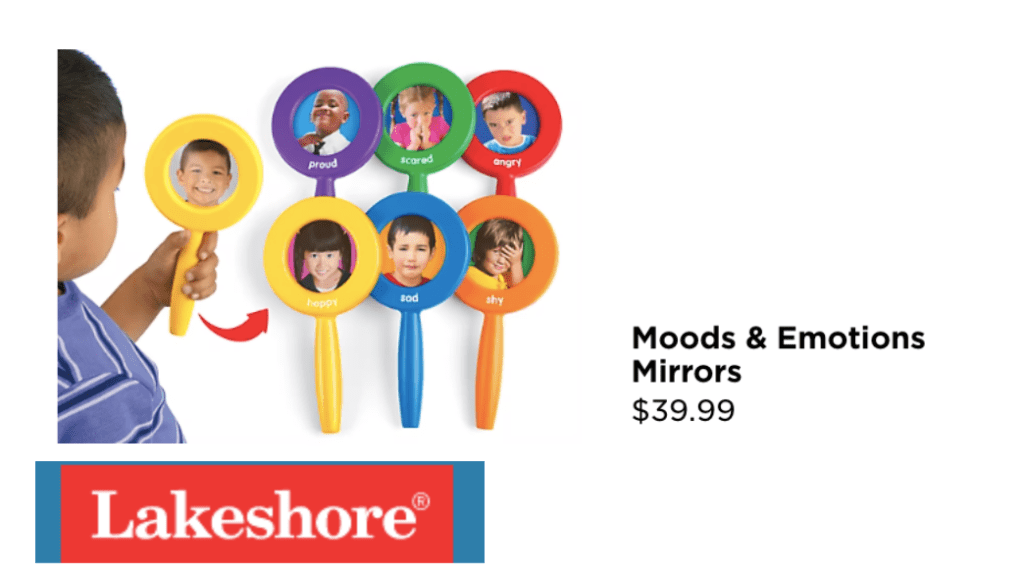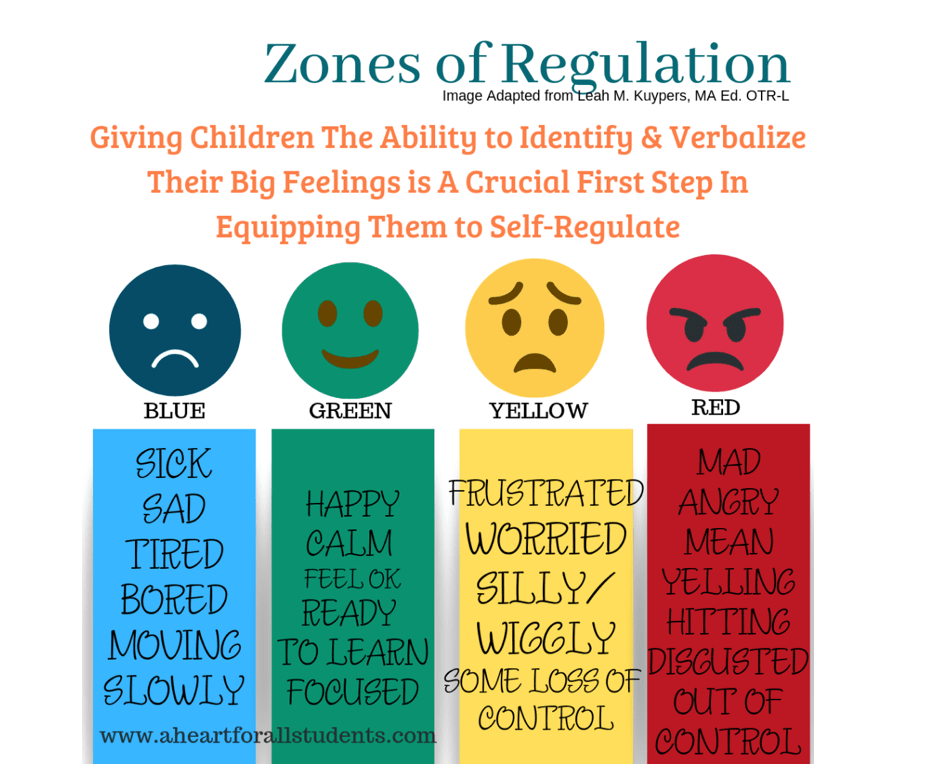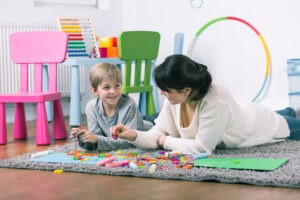Helping a child manage his or her emotions is something parents gain experience with from the very beginning.
Babies and toddlers, of course, need more support. It’s expected and developmentally appropriate for them to have big reactions, like crying or throwing a tantrum when someone takes their toy.
As children grow, parents typically anticipate that their child will naturally become more competent with managing their feelings day to day. But some children struggle with this skill, known as emotional regulation.
Having strong emotional regulation skills is important.
Emotional regulation has been tied to several other life skills, including self confidence, the ability to form relationships with others, and learning.
Knowing what emotional regulation difficulties look like, tuning into whether your child might struggle in this area, and using some helpful strategies can have a positive impact across several aspects of their life!
What is Emotional Regulation?
Emotional regulation is an individual’s ability to control their emotional state.
That includes:
- Which emotions you feel
- When you feel them
- The way you experience or express your feelings
A child can still feel a range of emotions, but by regulating those emotions, they express them in appropriate ways. And that can help them engage in daily activities.
Here are some common situations that require a child to apply emotional regulation skills:
- Learning/stress management (i.e., in the classroom or at home learning a new skill like how to ride a bike)
- Transitioning between tasks
- Resolving conflict with others
- Playing with peers
Showing empathy towards others - Behaving appropriately in different environments (i.e., speaking quietly in a library)
- Having conversations (i.e., taking turns talking and controlling the impulse to interrupt others)
Why Do Some Kids Struggle?
Emotional regulation skills develop throughout childhood.
Children start to learn how to manage their emotions during toddlerhood, and usually become much more skilled at this by age 5. By age 8 or 9, children typically have much better control over their feelings.
Signs of emotional dysregulation in children (trouble with regulating emotions) include:
- Difficulty making or keeping friends
- Frequent disruptions in the classroom
- Meltdowns that affect the child’s ability to complete daily routines and activities
- Trouble handling frustration (for example, when losing a game)
Children with Autism Spectrum Disorder, ADHD, Oppositional Defiant Disorder (ODD), or a history of trauma often have emotional regulation difficulties.
Emotional regulation abilities are tied to the development of several other skills.
Language development, sensory processing, and cognitive skills (like attention and problem solving) can all play a role in a child’s ability to regulate his or her emotions.
If a child struggles in any of these areas, it’s possible he or she might also show difficulty managing feelings.
How to Help
Does your child have major meltdowns beyond what you’d expect for their age? Do they become easily frustrated or upset, which interferes with daily activities?
Luckily, parents can play a big role in developing their child’s emotional regulation skills. Here’s what you can do to help.
Act Early
Birth through 3 years old is considered a “critical period” in brain development and learning.
The brain’s architecture continues to be shaped by the child’s experiences through age 8.
The good news for parents? The way you help your child learn to identify, process, and react to their feelings early on can set them up for a lifetime of success!
It’s never too early to start describing feelings. Look in the mirror with your child and make different facial expressions as you name the emotions that they show. Read books with your child and point out the characters’ feelings.
Lead by Example
You’ve probably noticed that your child is always watching you! What you say and do can shape the way they learn to regulate their own emotions.
Be open about how you’re feeling. Narrate the situation, calmly name your emotions, and talk through a solution.
For example, “I’m disappointed that the soccer game was canceled because of the rain. I’ll take some deep breaths and think of something fun we can do instead – like go to the movies!”
Take Time to Talk
Acknowledging how your child seems to be feeling can help him or her learn the vocabulary to express their emotions through words. For example, saying “It seems like you’re upset because you don’t want to leave the park.”
But, let’s be honest. Sometimes kids don’t want to talk when they’re feeling strong emotions.
Set aside some time later on throughout the week to talk one on one with your child. Being present and tuning into what your child is saying can help you learn how they are processing emotions.
According to the Child Development Institute, acknowledging and validating emotions can help support your child by helping them feel understood.
Try using visuals as a tool to help your child identify and express their feelings.
Act it Out
Follow up one of those honest discussions by role playing a difficult situation. You can adjust this according to your child’s age.
With younger kids, you might use dolls or figures to reenact a situation that caused him or her to have difficulties regulating emotions.
Older children may be able to act out the scenario with you. As you do this, brainstorm some problem solving ideas out loud with your child.
Praise Positive Behavior
Harsh parenting can actually cause a child with emotional regulation difficulties to react more aggressively.
Instead of focusing on the negative, like your child’s tantrum or misbehavior, praise positive behaviors.
In fact, experts recommend pointing out “positive opposites”. If your child usually cries when another child takes their toy, praise them when you see that they aren’t getting upset. Point out this positive behavior and let them know how proud of them you are.
Teach through Play
Children learn best through play!
Games like Red Light, Green Light and charades can help kids practice impulse control, turn taking, and how to appropriately react to winning or losing.
Additional Resources
Emotional regulation difficulties can make it difficult for children to make friends and learn new concepts at school. Parents play a critical role and can help children form strong, appropriate ways to manage their feelings.
Language development, sensory integration, and cognitive skills can all contribute to a child’s ability to regulate emotions.
If you have concerns about your child’s skills in these areas, specialized services from a Speech Language Pathologist or an Occupational Therapist can help. An initial evaluation can help determine what difficulties your child is having. Ongoing individualized therapy can include techniques and activities to help improve these areas.
TherapyWorks offers speech therapy, occupational and physical therapy both in person (in Illinois, Michigan, and Ohio) and through teletherapy (nationwide). If you would like to learn more, or discuss your child’s specific needs, please don’t hesitate to reach out to TherapyWorks!






